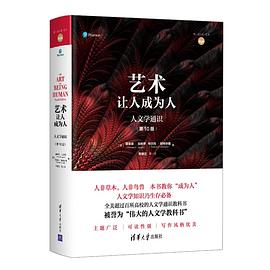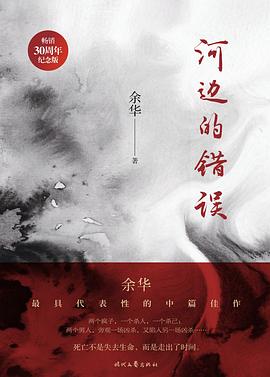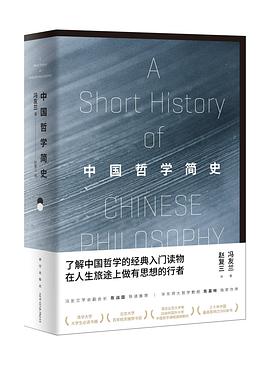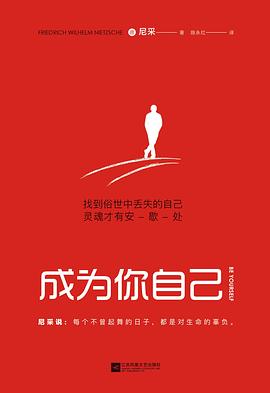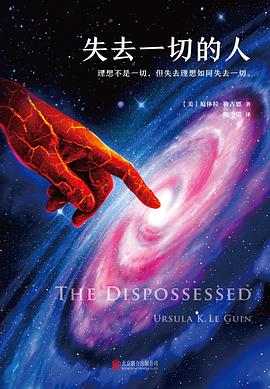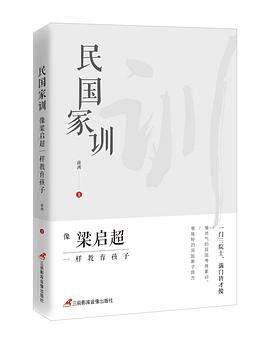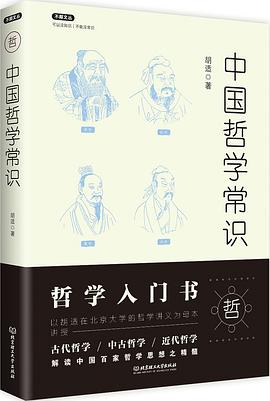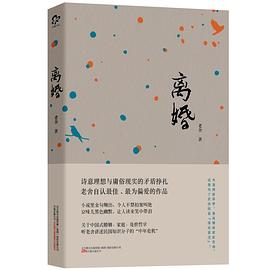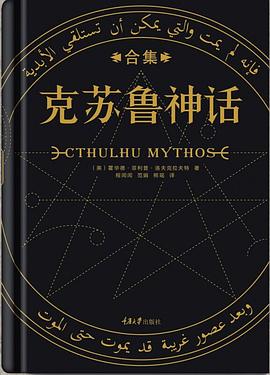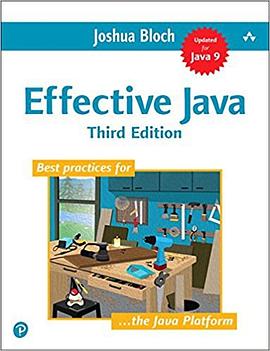

具体描述
The Definitive Guide to Java Platform Best Practices—Updated for Java 9
Java has changed dramatically since the previous edition of Effective Java was published shortly after the release of Java 6. This Jolt award-winning classic has now been thoroughly updated to take full advantage of the latest language and library features. The support in modern Java for multiple paradigms increases the need for specific best-practices advice, and this book delivers.
As in previous editions, each chapter of Effective Java, Third Edition, consists of several “items,” each presented in the form of a short, stand-alone essay that provides specific advice, insight into Java platform subtleties, and updated code examples. The comprehensive descriptions and explanations for each item illuminate what to do, what not to do, and why.
The third edition covers language and library features added in Java 7, 8, and 9, including the functional programming constructs that were added to its object-oriented roots. Many new items have been added, including a chapter devoted to lambdas and streams.
New coverage includes
Functional interfaces, lambda expressions, method references, and streams
Default and static methods in interfaces
Type inference, including the diamond operator for generic types
The @SafeVarargs annotation
The try-with-resources statement
New library features such as the Optional<T> interface, java.time, and the convenience factory methods for collections
作者简介
Joshua Bloch is a professor at Carnegie Mellon University. He was formerly the chief Java architect at Google, a distinguished engineer at Sun Microsystems, and a senior systems designer at Transarc. He led the design and implementation of numerous Java platform features, including the JDK 5.0 language enhancements and the Java Collections Framework. He holds a Ph.D. in computer science from Carnegie Mellon University and a B.S. in computer science from Columbia University.
目录信息
About the Author
Chapter 1: Introduction
Chapter 2: Creating and Destroying Objects
Chapter 3: Methods Common to All Objects
Chapter 4: Classes and Interfaces
Chapter 5: Generics
Chapter 6: Enums and Annotations
Chapter 7: Lambdas and Streams
Chapter 8: Methods
Chapter 9: General Programming
Chapter 10: Exceptions
Chapter 11: Concurrency
Chapter 12: Serialization
Index
· · · · · · (收起)
读后感
Creating and Destroying Objects 1, Consider providing static factory methods instead of constructors Pros: Named methods Flexible: not required to create a new object each time invoked. Flexible: can provide an object of any subtype. Cons The class without ...
评分很早就读过,当时就知道这本书很好,可惜当时功力尚浅,没什么收获。但近日再读时,确实很有收获,可以说此书虽不是深入骨髓,但也算入木三分。新手勿动!
评分坐在那里看了一个小时,看的心浮气躁,完全看不下去任何内容。一个小时过去了连一个章节都没看完。也可能是因为没带笔,直接看感觉特别烦躁。看来看去只感觉,这本书在讲什么,这段话在讲什么?估计我修炼还不到家。我先看看别的吧,提高提高自己技术再来看好了,毕竟这本书评...
评分 评分很早就读过,当时就知道这本书很好,可惜当时功力尚浅,没什么收获。但近日再读时,确实很有收获,可以说此书虽不是深入骨髓,但也算入木三分。新手勿动!
用户评价
我对于《Effective Java》的兴趣源于它在开发者群体中的极高声誉。在我看来,一本能够被如此广泛推崇的书籍,一定蕴含着深刻的价值。我希望这本书能够带我深入Java语言的“腹地”,理解那些隐藏在表象之下的设计哲学和实现原理。我特别关注书中关于如何编写线程安全的代码、如何有效地管理内存以及如何避免常见的Java陷阱的部分。在多线程编程日益重要的今天,我渴望掌握能够写出健壮、高效的并发代码的技巧。同时,我也对书中关于如何利用Java的特性来优化代码性能,提高程序的可读性和可维护性的建议充满期待。我相信,通过学习这本书,我能够将我的Java编程技能提升到一个新的水平,成为一名能够应对各种复杂挑战的Java开发者,为团队的项目贡献更稳定、更高效的解决方案,并且能够帮助年轻的开发者少走弯路,更快地成长。
评分在软件开发的世界里,《Effective Java》的名字如雷贯耳,它被誉为Java开发者的必读书籍之一,我对此早有耳闻,并将其列入了我的学习计划。我希望通过阅读这本书,能够深入理解Java语言的精髓,学习到那些能够显著提升代码质量和开发效率的最佳实践。我的关注点在于书中关于如何优雅地处理Java中的各种设计模式,以及如何写出更具可重用性和可维护性的代码。例如,我一直对Java中的泛型、注解、枚举等特性在实际开发中的最佳使用方式感到好奇,希望这本书能够提供清晰的解释和实用的示例。我也希望它能帮助我理解那些在大型项目中至关重要的设计原则,例如SOLID原则在Java中的具体体现,以及如何通过良好的设计来降低代码的复杂性,提高开发者的协作效率。总而言之,我期望《Effective Java》能够成为我技术成长道路上的重要指引,帮助我成为一名更成熟、更专业的Java开发者,能够为公司带来更高质量的软件产品。
评分《Effective Java》这本书的问世,无疑是Java开发者社群的一件大事。作为一名长期致力于Java开发的工程师,我一直在寻找能够系统性提升我代码质量和设计能力的书籍,而《Effective Java》似乎正是我苦苦追寻的那块拼图。我关注的重点在于它是否能帮助我理解Java语言核心的那些设计哲学,以及如何在实际开发中规避常见的陷阱。比如,对于集合框架的使用,我希望能更深入地理解其内部机制,从而做出更优化的选择;对于并发编程,我渴望能够掌握那些能够有效处理多线程环境下的复杂情况,避免死锁、竞态条件等棘手问题的技巧。更重要的是,我希望这本书能够传授给我一种“思考”的方式,一种更高级的、更具前瞻性的编程思维模式,让我不仅仅是“写出能跑的代码”,而是“写出好代码”。这本书的篇幅和内容深度,让我对其价值充满信心,相信它能为我提供宝贵的知识和经验,让我在技术道路上走得更稳、更远,成为一个更优秀的Java工程师,能够为团队带来更高效、更可靠的代码解决方案。
评分《Effective Java》这本书,我关注已久,它在我心中一直占据着“提升Java技能的圣经”的地位。我希望通过阅读这本书,能够真正理解Java语言的设计意图,以及如何以最有效、最优雅的方式来使用它。我特别关注书中关于如何构建健壮、可扩展和易于维护的Java应用程序的章节,例如如何正确地使用接口、如何有效地处理异常、如何设计良好的类和对象,以及如何编写清晰、简洁的文档。我希望这本书能够为我提供一些具体的、可操作的建议,帮助我写出更符合Java语言特性、更高效、更易于团队协作的代码。我也希望它能帮助我理解那些在大型项目中至关重要的设计模式和架构原则,并学会如何在实际开发中灵活运用它们。总而言之,我期待《Effective Java》能够帮助我从一个“会用Java”的开发者,蜕变成一个“精通Java”的开发者,为我的职业生涯带来质的飞跃,并成为团队中不可或缺的技术骨干。
评分我选择《Effective Java》并非一时兴起,而是经过深思熟虑的。作为一名对Java语言怀有深厚感情的开发者,我深知精通一门语言不仅仅是掌握其语法和API,更在于理解其设计理念和最佳实践。我曾经在项目中遇到过一些因为对Java特性理解不够透彻而导致的性能问题和维护难题,这让我意识到,仅仅依靠经验是不足够的,我需要更系统、更深入的学习。我特别希望《Effective Java》能够帮助我理解Java中那些“约定俗成”的最佳实践背后的原因,例如为何要优先使用接口而不是实现类,为何要优先使用组合而不是继承,这些看似简单的原则,背后往往蕴含着深刻的设计智慧。我也对书中关于如何编写健壮、可读、可维护代码的建议充满期待,希望它能为我提供一些实用的技巧和模式,让我能够将这些原则融会贯通,并应用于我未来的项目开发中,成为一名更具影响力的Java开发者,能够领导团队构建高质量的软件项目。
评分对于《Effective Java》,我的期待是它能像一位经验丰富的老者,娓娓道来Java语言中那些不为人知的“秘密”和“智慧”。我尤其关注书中关于如何优化代码性能、提高程序稳定性和增强代码可读性的部分。在日常开发中,我常常会遇到一些性能上的瓶颈,或者在调试过程中发现一些难以捉摸的Bug,这让我迫切地需要一本能够深入剖析Java语言内在机制的书籍。我希望《Effective Java》能够提供一些具体的、可操作的建议,帮助我避开那些常见的“坑”,写出更高效、更可靠的代码。同时,我也希望这本书能够提升我的设计能力,让我能够写出更符合面向对象设计原则、更易于扩展和维护的代码。我相信,通过学习这本书,我能够将我对Java的理解提升到一个新的层次,成为一名真正能够驾驭Java这门强大语言的开发者,为我的职业生涯注入新的活力和动力,让我能够为更复杂的项目贡献我的力量。
评分我对《Effective Java》这本书的期待,在于它能够为我提供一套系统化的Java编程方法论。我并非只满足于了解Java的语法和API,我更希望能够理解其背后更深层次的设计哲学和最佳实践。我尤其希望书中能够深入讲解如何编写高性能、高可维护性的Java代码,例如如何有效地利用Java的并发机制,如何优化JVM的性能,以及如何设计出易于测试和扩展的类和接口。我希望能通过这本书,将那些困扰我的编程难题一一破解,找到更优雅、更高效的解决方案。同时,我也希望这本书能够启发我思考一些更宏观的设计问题,例如如何构建可靠的大型Java应用程序,如何进行有效的代码重构,以及如何应对不断变化的Java技术生态。我相信,通过学习《Effective Java》,我将能够成为一名更具洞察力、更能解决实际问题的Java开发者,为我个人的职业发展和团队的成功做出更大的贡献。
评分终于,我将《Effective Java》这部久负盛名的著作请回了我的书架。在阅读之前,我早已从无数的开发者口中听闻它的“神话”——据说它能让Java开发从“你知道怎么做”提升到“你知道为什么这么做,以及如何做得更好”。作为一个在Java世界里摸爬滚打多年的开发者,我深知那些看似微不足道的细节,往往是性能瓶颈、Bug温床,甚至是代码可维护性的巨大鸿沟。我希望这本书能为我拨开那些隐藏在Java语言表象之下的深刻理解,让我能够写出更健壮、更优雅、更具表现力的Java代码。我尤其期待它能解答我在实践中遇到的那些“为什么会这样?”的时刻,并提供切实可行的解决方案,而不是停留在概念层面。对于这本书我抱有极高的期望,希望它能成为我技术生涯中的一座里程碑,引领我走向更深层次的Java编程智慧,并且能够启发我思考那些尚未遇到的问题,提前构筑起坚固的技术防线,让我的开发过程更加高效和令人愉悦。我迫不及待地想沉浸在其中,学习那些经过时间洗礼的、大师级的编程思想。
评分作为一名Java开发者,我一直在寻找能够帮助我写出更优质代码的书籍,而《Effective Java》无疑是其中最受推崇的一本。我希望这本书能够深入浅出地讲解Java语言的各种特性,并提供实用的编程建议。我特别关注书中关于如何提高代码的性能、如何避免常见的错误以及如何编写清晰、易于理解的代码的部分。例如,我希望它能帮助我理解Java中的序列化、反射、注解等高级特性,并知道如何在实际开发中恰当地使用它们。我也对书中关于如何编写线程安全的代码、如何有效地使用集合框架以及如何进行性能优化的内容充满期待。我相信,通过学习《Effective Java》,我能够将我的Java编程技能提升到一个新的高度,成为一名更优秀的开发者,能够为我的项目带来更高质量的代码,并且能够将这些经验分享给我的同事,共同提升团队的整体技术水平,为公司创造更大的价值。
评分《Effective Java》这本书对我来说,更像是一份来自Java语言“创造者”的直接指导。我希望通过阅读它,能够深入理解Java设计者们在语言设计过程中所考虑的各种权衡和选择,并学习到那些能够让我的代码更加“Java风格”的智慧。我特别关注书中关于如何正确使用Java语言特性来提升代码的健壮性、安全性和可读性的部分。例如,我希望能更深入地理解Java中各种设计模式的精髓,以及如何在实际开发中恰当地运用它们来解决复杂问题。我也对书中关于如何编写高效的并发代码、如何进行有效的资源管理以及如何避免常见的Java安全漏洞等内容充满期待。我相信,通过系统地学习《Effective Java》,我能够将我对Java语言的理解提升到一个全新的层次,成为一名能够写出真正“精炼”、“高效”和“安全”的Java代码的开发者,从而在日益复杂的软件开发领域中脱颖而出,为我所处的项目带来显著的价值和优势。
评分相比C++的effective系列 这本明显把重点放在设计模式上了。看了这本书最大的感受C++真是(除了python之外)最好的语言。虽然能实现的效果相同 但cpp明显写的畅快多了 : )
评分相比C++的effective系列 这本明显把重点放在设计模式上了。看了这本书最大的感受C++真是(除了python之外)最好的语言。虽然能实现的效果相同 但cpp明显写的畅快多了 : )
评分读过2rd的人,diff ## Chapter 2 - Creating and Destroying Objects - Item 5: Prefer dependency injection to hardwiring resources. 优先用框架支持(Spring)依赖注入,而不是手写单例 - Item 9: Prefer try-with-resources to try-finally. Java 7 特性,语法糖 ## Chapter 4 - Classes and Interfaces - Item 21: Design interfaces for posterity. interface default 实现,大家都会的 - Item 25: Limit source
评分相比C++的effective系列 这本明显把重点放在设计模式上了。看了这本书最大的感受C++真是(除了python之外)最好的语言。虽然能实现的效果相同 但cpp明显写的畅快多了 : )
评分距离第二版又过去了十年。主要增加了Java 7/8/9 的内容。还是很有收获。
相关图书
本站所有内容均为互联网搜索引擎提供的公开搜索信息,本站不存储任何数据与内容,任何内容与数据均与本站无关,如有需要请联系相关搜索引擎包括但不限于百度,google,bing,sogou 等
© 2026 book.quotespace.org All Rights Reserved. 小美书屋 版权所有

